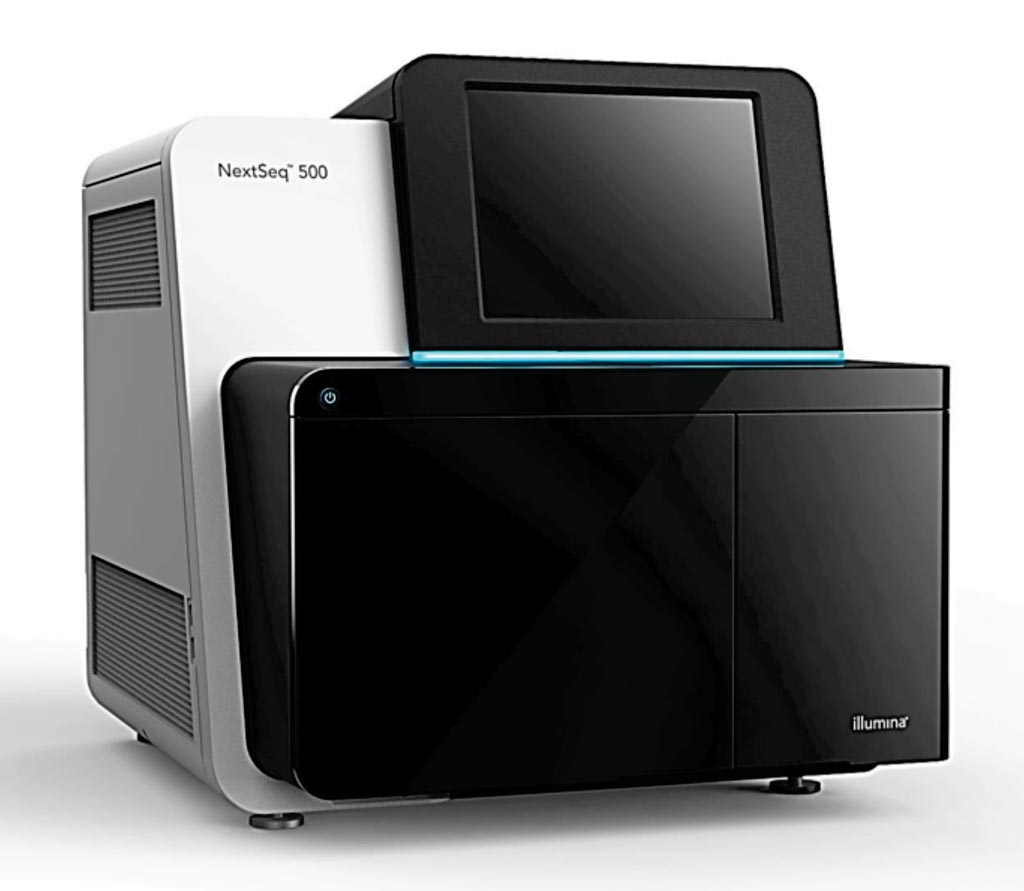Mutational Profile of Metastatic Breast Cancers Analyzed
By LabMedica International staff writers
Posted on 18 Jan 2017
Breast cancer often results in poor outcomes after it has metastasized to distant organs, but, while primary breast tumors have been extensively characterized at the molecular level, metastatic lesions are poorly understood.Posted on 18 Jan 2017
Recent data from different types of cancer have suggested that there is a strong heterogeneity between primary tumors and metastases, and that genomic profiles of metastases could dramatically differ from primary tumors.

Image: The NextSeq 500 Series desktop sequencing system (Photo courtesy of Illumina).
A large team of French scientists led by those at the Centre Léon Bérard characterized the mutational landscape of metastatic breast cancer by performing and analyzing whole-exome sequencing of a large collection of metastatic breast tumors and corresponding blood samples. The authors generated a significant collection of whole-exome sequencing data from the DNA of breast cancer metastases and from each patient’s corresponding unmutated DNA in order to identify mutations and gene copy number alterations specific to the tumors.
Genomic DNA was captured using Agilent in-solution enrichment methodology followed by 75-base paired-end massively parallel sequencing on HiSeq2500, HiSeq4000, or NextSeq500. The bioinformatics analyses identified recurrently mutated genes in metastatic tumors and revealed the genes specifically involved in metastatic disease by comparing their mutational frequency to those of primary breast tumors. The study allowed identification of the affected genes and of mutational signatures that were more prevalent in metastatic as compared with primary tumors and that may be involved in the resistance to therapies.
The identification of mutational and copy number alterations specifically involved in breast cancer metastasis demonstrated that tumors evolve under the pressure of therapy. Characterization of mutations and copy number alterations in metastatic lesions in addition to primary tumors should help to tailor treatment for patients, with the potential for improved clinical outcomes. The authors concluded that their study demonstrated that profiling metastatic cancer can be a major step in defining optimal treatments for patients, as new mutation events and processes may arise during cancer treatment. The study was published on December 27, 2016, in the journal Public Library of Science Medicine.














